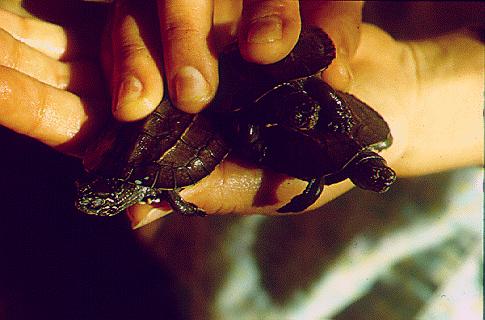Captive Breeding of Indian Turtles and Tortoises
at the Centre for Herpetology/Madras Crocodile Bank
 |
ROMULUS WHITAKER and HARRY V. ANDREWS
Centre for Herpetology/Madras Crocodile Bank,
Post Bag 4, Mamallapuram, Tamil Nadu 603 104, India
ABSTRACT: Since its inception in 1976 the Centre for Herpetology/Madras Crocodile Bank has maintained breeding groups of Indian turtles and tortoises. A total of 300 individuals of 20 species are kept as part of the Centre’s ongoing research program. Several species have bred regularly, and we present data from the past several years.
India's population of nearly one billion people creates immense pressures on habitat, particularly in aquatic areas, and uncontrolled commercial exploitation of turtles poses significant threats to turtle populations. Captive breeding and restocking programs, combined with habitat protection and management, may prove crucial to the survival of several species. Captive breeding and/or rearing of turtles of commercial importance may also help curb the exploitation of wild turtles. Knowledge of the breeding biology of these animals is critical to the success of both captive breeding and habitat management programs.